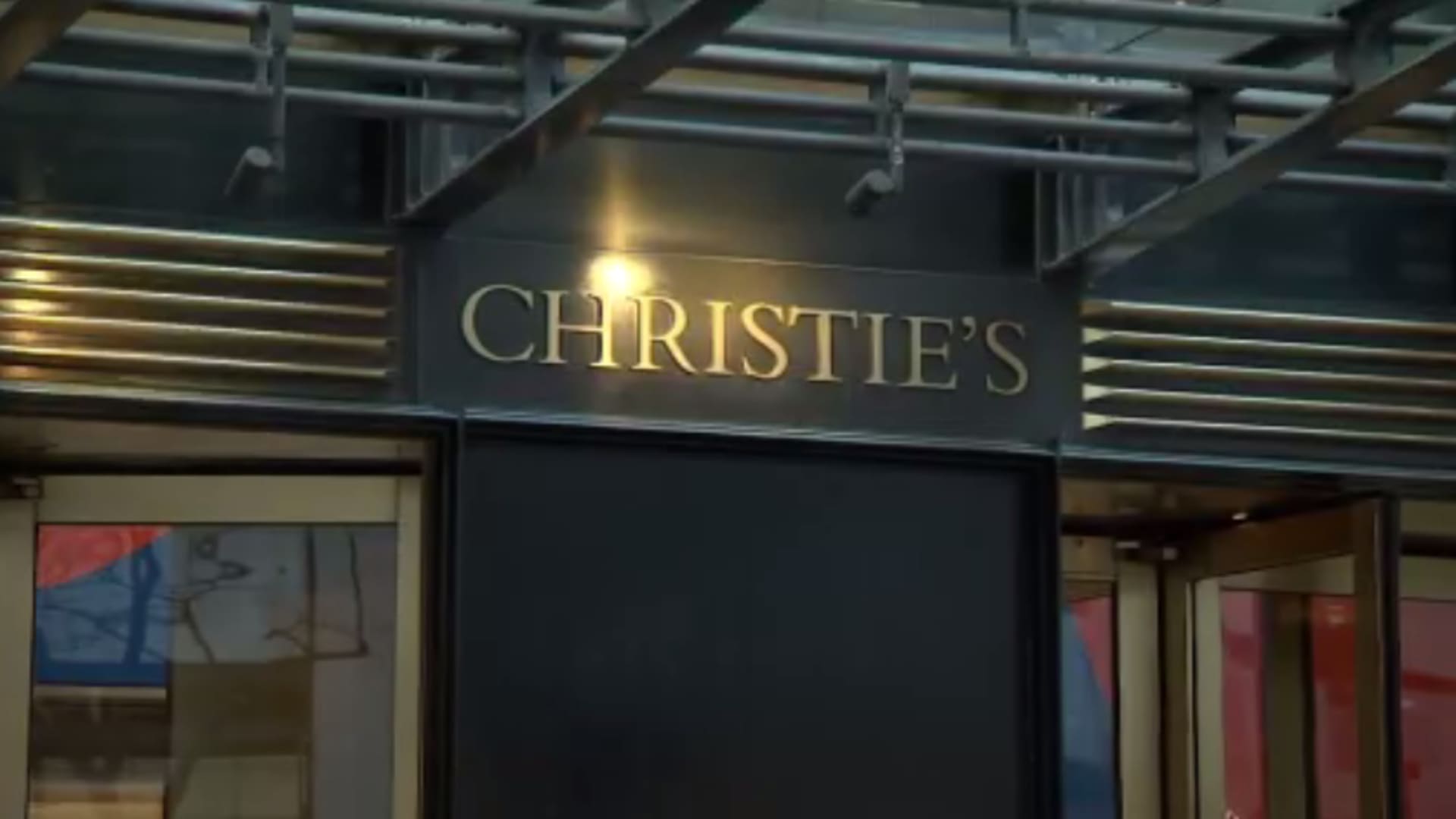A version of this first article appeared in CNBC’s Inside Wealth newsletter with Robert Frank, a weekly guide to the high-net-worth investor and consumer. Sign up to receive future editions, straight to your inbox.
Auction house Christie’s just sold a painting for more than $100 million, although the artwork, the buyer and the seller were officially kept a secret.
In an interview with CNBC, CEO Guillaume Cerutti said Christie’s sold a painting in January in a private sale with a price “in excess of $100 million,” though the auction house declined to provide details.
Art dealers familiar with the transaction told CNBC the painting was Mark Rothko’s “No. 6 (Violet, Green and Red),” painted in 1951. It was sold by Russian billionaire and collector Dmitry Rybolovlev, who purchased the piece for a reported 140 million euros in 2014.
Kenneth Griffin, the hedge fund billionaire and Citadel CEO, bought the piece from Rybolovlev last month. Griffin, a major collector of nine-figure artworks, declined to comment through a spokesperson.
The mysterious nature of the sale, with few publicly available details, highlights the rapid growth in recent years of private sales — a little-noticed and secretive corner of the auction world. In a private sale, a work is brought for a possible sale to an auction house, which reaches out to its top clients and brokers a deal. Private sales have surged since the Covid-19 pandemic, as more and more collectors prefer discreet transactions outside the public eye.
Last year, Christie’s racked up $1.2 billion in private sales, up 49% from pre-pandemic levels and adding to its $5 billion in public auction sales. Auction house Sotheby’s reported $1.2 billion in private sales, up from $1.1 billion in 2022.
Private sales are especially effective for coveted masterpieces and can often eclipse top prices at auction. Last year, the most expensive work Christie’s sold at public auction was a $74 million Monet water lily painting, yet Cerutti said it sold a work in a private sale for an undisclosed higher price.
He said private sales do especially well during periods of economic uncertainty. Last year, total sales at the major auction houses were down 19%, according to ArtTactic.
“[Private sales] are the perfect market to be contracyclical,” he said. “When the market is more difficult with auction, the sellers or the consigners may feel that there is a risk for them of not selling the object and therefore, when an object doesn’t sell, it becomes more difficult to sell it in the coming years. When the market is more challenging, generally private sales do better.”
Cerutti also said clients like it “because it’s quick and confidential.” It’s also a way for Christie’s to “approach the best collectors in the world.”
The $100 million sale could also be a positive sign for the broader art and collectibles market as Christie’s gears up for its spring sales. Its auction of “The Collection of Sir Elton John,” with more than 900 items from the musician’s former Atlanta home, totaled $20.5 million — more than twice the estimate.
The top lot was Banksy’s “Flower Thrower Triptych” that sold for $1.9 million. A Rolex Daytona wristwatch with a leopard-print dial sold for $176,400, and a pair of silver platform boots went for $94,500 — more than 19 times the low end of estimates. John’s beloved 1990 Bentley Continental went for $441,000, far above its low estimate of $25,000.
Christie’s said more than 450,000 collectors and fans browsed the sales online in the weeks leading up to the auctions. The live auction attracted nearly one million views from around the world, the auction house said.
Sign up to receive future editions of CNBC’s Inside Wealth newsletter with Robert Frank.
